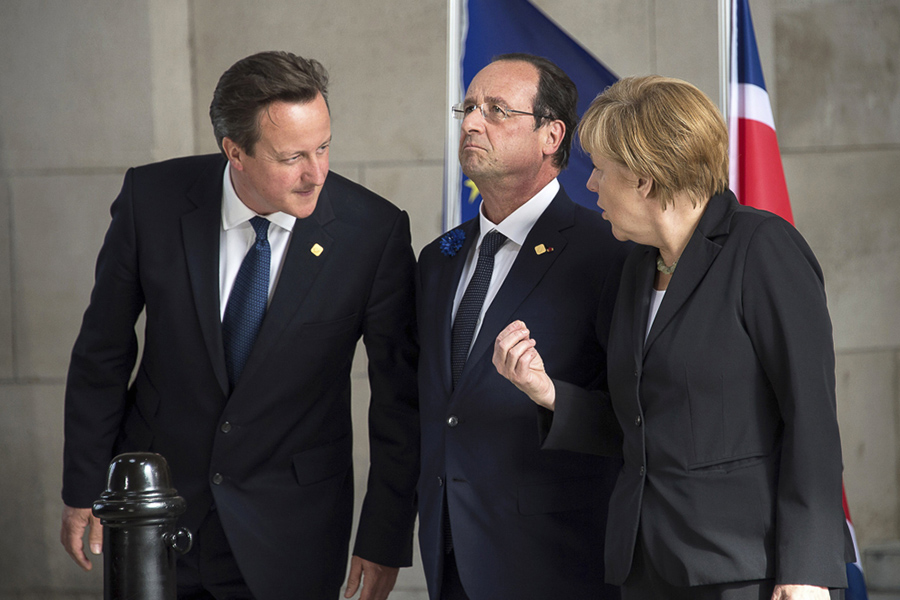
The 6 February 2018 in the new the European Commission strategy for the Western Balkans, for the first time since the first steps of this region towards EU, the digital agenda became central. Launching a digital agenda is one of the six flagship initiatives, the actions that the EU will take over the next years to support the transformation efforts of the Western Balkans.
Why that ? Is it only because we are in 2018 and it cannot be another way. I don’t believe so.
I believe that a strong digital transformation can change the face of these six countries: Albania, Serbia, Bosnia Herzegovina, Montenegro and Macedonia.They are surrounded by EU countries, Slovenia, Croatia, Bulgaria, Romania, Hungary, Greece and Italy on the other river.
Western Balkans are an island of 18 million people inside an European Union of around 500 million.
Population is yet younger than in EU despite continuous migration from a quarter a century. The six countries have serious problems with rule of law and corruption. Bribery for services is widely in the common mentality and organised crime has strong networks.
World Economic Forum’s 2016/17 Global Competitiveness Report ranked Serbia 137th out of 138 countries for “capacity to retain talent”. Bosnia was ranked 134, while Albania and Macedonia were slightly ahead.
But people in these countries are and stay profoundly European in their aspirations. Every family is ready to make any sacrifice to send children study somewhere in Europe. Because Europe seen from there is the ideal world of democracy, welfare and equal chances.
So what can do the digital transformation in that situation ? It can first give to these youngs stable jobs. They are generally enough educated to be ready to absorb short term programs on digital skills giving them different perspectives of online jobs. Jobs that are no more under political pressure. It will give them more freedom to think and to act.
A large scale investment on digital innovation hubs can give to another category of high skilled students the power to generate new jobs, new revenues with investments that are by far less important than investments in other domains. To create new positive role models in countries that lately seriously lack them. To create incentives to modernize the economy instead of leaving available money to continue to go for building buildings half empty while people continue to migrate abroad.
Massive digitization in the education and health can lower costs and improve services for the citizens Blockchain technology can bring a solution for land property making transactions secure and transparent.
Opening government data will make corruption more difficult. Rule of law can be improved if all the judiciary decisions are immediately public and transparent. E-procurement can increase transparency and control on public spending.
Digital will be really trans formative under two conditions. First if it is rapid and massive. If not, those who have interests to keep things as they are, can and will find the way to transform any digital transformation in a archaic incomprehensible and uncontrollable mess. Second, if the EU standards are used and strongly monitored. If not, digital can be even more difficult to control.
EU can give to young people of the Western Balkans through the digital agenda hope and power to transform this very small but noisy region. Because ‘an investment in the Western Balkans is an investment in Europe’, in it’s safety and security.
All these points are in the announced EU Commission enlargement strategy. I wish we see all that at work very soon.




4 Comments
RacingFail
Some observations and corrections: ad 1) The war was not a civil war, as the Serb propaganda wants to make the world believe, but a war against the civilians sponsored by Serbia and Croatia in a quest to carve up Bosnia between those two republics. ad 3) Sarajevo”s tram is not one of the oldest in Europe, but the oldest. As the project was too risky to be accepted in Vienna, this pilot project was (sucessfully) moved to Sarajevo a place that greatly benefitted by the modernisation brought from the Austrian empire. ad 4) Since the Serbs opposed any anthem for the country, it was imposed without text from the High Representative. The Serbs still continue to oppose anything like an anthem (or national flag, which was also imposed, or for the matter anything that relates to State symbols), the result of which it is impossible to have lyrics attached to the anthem. ad 6) The Sutjeska National Park is breathtaking. Contrary of what is said, it can also be visited without park rangers. ad 9) The word “hate is misplaced. The Bosnian and Herzegovinians do rather pity, à la limite: despise it, since it is weak. The Serbs (and sometimes the Croats) use, on a regular base, their veto to sabotage and paralyse the entire State institutions. This is done voluntarily, since it is just a political continuation of the objectives of their warfare, namely to destroy the country and carve it up between Serbia and Croatia.
Comments are closed.